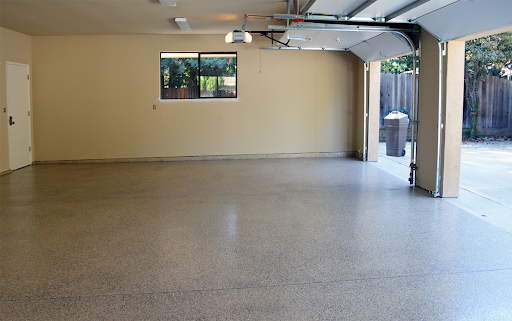Let’s be real. Starting a maintenance business is not just about showing up with tools and getting the job done. There’s a method to the madness, and if you want to build a business that lasts, you’ve got to play by the rules
These unwritten (but oh-so-important) guidelines will help you stay ahead of the competition, impress your clients, and make your business thrive.
Happy Customers, Happy Business
Customer satisfaction isn’t just important—it’s everything. A well-run maintenance business thrives on repeat customers and glowing referrals. Want to keep clients coming back? Try this:
- Show up on time, every time.
- Deliver what you promised (and then some!).
- Fix issues fast and with a smile.
- Follow up after service to ensure satisfaction.
- Offer maintenance plans or loyalty perks for regular customers.
Consistency Is Your Secret Weapon
Nothing sends customers running faster than unreliable service. A solid reputation takes time to build, but just one mistake can ruin it. Keep your standards high by using:
- A checklist for every job.
- Scheduling tools to stay on top of appointments.
- Quality control measures; to ensure every project meets expectations.
- A detailed log of previous jobs so returning customers receive seamless service.
- Employee training sessions to maintain service consistency.
Your Team Represents You
Your employees are a reflection of your business. If they’re rude, unprofessional, or show up looking unkempt, your reputation takes the hit. Set the bar high with:
- Professional training.
- Clear expectations for behavior and appearance.
- A culture of respect and reliability.
- Regular performance evaluations with incentives for top performers.
- Company-branded uniforms for a polished look.
Invest in the Right Equipment
Skimping on tools and supplies is a recipe for disaster. Not only does it slow you down, but it also leads to subpar results. High-quality equipment boosts efficiency, saves time, and makes your work look top-notch. Some key investment areas include:
- High-performance power tools for precision work.
- Eco-friendly cleaning products to attract sustainability-conscious clients.
- Reliable transportation with storage solutions for tools and supplies.
- Routine maintenance and upgrades for equipment to avoid unexpected breakdowns.
Don’t Skip the Paperwork
It might not be the most exciting part of the job, but having the right licenses and insurance is non-negotiable. Accidents happen, and when they do, you want to be protected. Plus, customers feel more confident hiring a fully licensed, insured business
Essential paperwork includes:
- Business licenses and permits relevant to your industry.
- General liability and workers’ compensation insurance.
- Detailed contracts outlining scope, costs, and terms of service.
- Client waivers or disclaimers, where applicable.
Marketing Matters
You might be the best in the business, but if no one knows about you, it won’t matter
Get the word out by:
- Setting up a strong online presence with a professional website and active social media.
- Encouraging reviews from happy clients on platforms like Google and Yelp.
- Running targeted ads in your local area to reach potential customers.
- Offering referral discounts to existing customers who bring in new business.
- Collaborating with other local businesses for cross-promotions.
Get Your Pricing Right
Pricing too high? You’ll scare off potential customers. Too low? You won’t make a profit
Find a sweet spot by:
- Researching your competitors to understand market rates.
- Calculating your operational costs, including labor, supplies, and overhead.
- Offering tiered pricing or package deals to appeal to different budgets.
- Being transparent about pricing to build trust with clients.
Specialize to Stand Out
A “we do it all” approach might sound appealing, but specializing in a niche can actually make you more competitive. Whether it’s eco-friendly cleaning, high-end home maintenance, or emergency repairs, being known for something specific can give you an edge. Consider:
- Adding specialized certifications to boost credibility.
- Offering unique services that competitors don’t.
- Highlighting case studies or testimonials from niche projects.
- Partnering with vendors that align with your niche to provide premium services.
Franchise Types to Consider:
A Cleaning Services Franchise
If a cleaning services franchise sounds appealing, do your due diligence
Franchises come with brand recognition and a built-in customer base, but they also have strict guidelines. Research the support, costs, and expectations before diving in
Key considerations include:
- Initial investment and ongoing royalty fees.
- Required training and operational standards.
- Level of marketing and branding support from the franchisor.
- Success rates of existing franchisees.
- Freedom to expand or customize services within the franchise model.
A Fence Franchise
For those eyeing a fence franchise, success comes down to quality materials and expert installation. Clients expect durability, security, and aesthetic appeal. Proper training and top-tier workmanship will keep your business in demand
Other factors to consider:
- Offering multiple material options, from wood to vinyl and metal.
- Providing warranty options to boost customer confidence.
- Partnering with real estate developers or landscapers for bulk contracts.
- Keeping up with industry trends, such as eco-friendly fencing solutions.
Wrapping It All Up
Running a maintenance business isn’t just about hard work—it’s about working smart
Whether you’re building a cleaning services franchise or scaling a fence franchise, following these rules will keep you ahead of the game. Focus on quality, consistency, and customer service, and you’ll build a business that stands the test of time. Put these principles into action, and soon enough, your maintenance business won’t just survive—it will thrive!
Note: Sponsored Post









